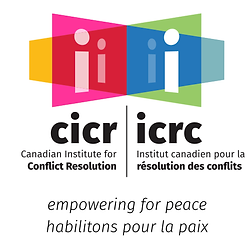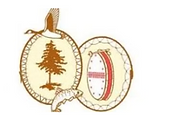Conflict Resolution Services

Transforming Conflict Into Collaboration
At the Canadian Institute for Conflict Resolution (CICR), we're passionate about resolving conflicts. With over 37 years of experience, we've helped thousands of people from different backgrounds learn how to better deal with conflict.
Empowering Organizations in Canada and Abroad
We offer a wide range of services to help your team manage conflicts and build conflict-resolution skills. We've worked with private and public organizations, NGOs, and communities worldwide, providing them with personalized support and professional development.
Tailored Services for Organizations — In English and French
-
Training for your team: Whether you choose one of CICR’s flagship workshops—like our One-Day Immersion or our Third Party Neutral (TPN) course—or prefer a program tailored to your organization’s needs, we offer proven conflict resolution training to strengthen trust, engagement, and collaboration. More on Custom Training.
*Duration, content, and delivery can all be adjusted to fit your goals.
-
Group Conflict Interventions: To address conflicts in groups, we design interventions that include mediation, coaching, facilitation, and customized training.

Led by expert practitioners from the Canadian Institute for Conflict Resolution
Trusted by governments, unions, and frontline teams across Canada for 37+ years
Book a Free Consultation
Interested in conflict resolution intervention services for your organization?
Fill out the form below.

Topics We Can Cover
Here are some examples of topics we can include in your custom training:
Conflict Resolution Fundamentals
-
Understanding Sources & Dynamics of Conflict
-
Layers of Conflict (Positions, Interests, Needs)
-
The Spectrum of Conflict Resolution Choices
-
Self-Awareness (Values, Assumptions, Triggers)
-
Recognizing Conflict Styles and Mindsets
-
Steps and Processes to Resolving Conflict
-
Community-Based Conflict Resolution Values and Peer-Based Experiential Learning
-
Third-Party Neutral Approach and Principles
Mediation Skills - Facilitating Conversations
-
Mediator and TPN’s Role, Skills and Practice
-
The Mediation Process: Pre-Mediation, Storytelling, Negotiating, Brainstorming, Consensus Building, Getting to Agreement
-
Mediator’s Self-Awareness & Self-Management (Inner & Outer World)
-
Challenges in Mediation: Impartiality, Biases, Impasse, Power Imbalances, Ethics
-
Interest-based Mediation and Negotiation
-
Co-Mediation, Online Mediation, Multiparty and Group Processes
Fostering Respect and Wellbeing in the Workplace
-
Competencies and Tools for Workplace Assessment and Harassment Complaints
-
Interviews, Note Taking and Case Management
-
Presenting Options (Negotiation, Conciliation, and Investigation) in a Neutral Approach
-
Addressing Mental Health and Wellbeing
-
Restorative Approaches & Self-Care Practices
-
Designing Systems and Processes for Conflict Management and Restoration towards Healthy and Harmonious Workplaces
Core Conflict-Resolving Soft Skills & Competencies
-
Active, Reflective, Empathetic Listening
-
Inclusive and Assertive Communication
-
Encouraging Dialogue: Conflict Coaching
-
The Art of the Question and Reframing
-
Giving and Receiving Empowering Feedback
-
Managing Difficult Conversations and Challenging Behaviours
-
Understanding Human Identity Needs and Deescalating Emotions
-
Moving from Positions to Motivations to Values
-
Reflective Practice and Self-Management
Group Facilitation and Community Dialogue
-
Role of a TPN Facilitator: Mandate, Group Guidelines
-
Facilitation Competencies and Tools
-
Understanding Group Dynamics and Needs
-
Handling Challenging Behaviours
-
Experiential Learning and Process Cycle
-
Brainstorming and Reaching Consensus
-
Collaborative and Participative Dialogues
-
Circle and Community Dialogues
-
Using Training as an Intervention Tool.
Advancing Diversity, Equity and Inclusion
-
Creating Psychological Safety to Dialogue
-
Having Conversations and Definitions about Diversity, Equity, Inclusion, Accountability, Difference and Privilege in our Organization.
-
Identity-based and Deep-Rooted Conflicts: Honouring Identity Needs and Dignity
-
Unconscious Biases and Cultural Competence
-
Nurturing an Integrated, Motivated, Engaged, Collaborative, Change & Conflict-Resilient Work Climate and Culture
Join our list of formidable clients— a few of many organizations and professionals who trust us.









Mediation
About Our Services
Are you currently being faced with a situation that is consuming your energy and time because of a dispute, miscommunication, perceptions, threats, or any other conflicting situation?
Then, you are not the only one, and mediation could become your cost-effective and efficient solution for your organization.
The process
Mediation is a voluntary and informal process in which a third-party neutral assists parties in their efforts to reach a mutually acceptable settlement. Unlike a judge or arbitrator, the mediator has no power to impose a solution on the disputants. The core of mediation is in its ability to orient parties to each other so they can see their relationship from a new perspective. By assisting in communication, developing a cooperative, problem-solving attitude, identifying underlining interests, narrowing issues and transmitting messages between parties, mediation explores possible options for agreement and the consequences of non-settlement.
The steps
-
A mediator assesses your case to determine if mediation is appropriate for the situation.
-
If the mediator thinks the process could help, he will invite the other party to participate in mediation.
-
If the other party accepts, the mediator will meet with each of you separately to explain the process and rules of conduct of the mediation.
-
A mediation meeting will be arranged with both parties at a time and date convenient to everyone.
-
The mediator will facilitate communication and help the parties agree on a solution.
Facilitation
Are you having a hard time working on achieving objectives in a team?
Are you feeling frustrated at the length and the time spent in meetings?
Are you experiencing tension in your team or your community group?
If you are, a facilitator could be of help in any of the following areas:
-
Planning sessions - strategic and project-specific
-
Problem-solving, including creative solutions
-
Decision-making, including consensus building
-
Developing solutions for groups in conflict
-
Analysis of conflict and group dynamics
-
Techniques for giving and receiving feedback
-
Team building exercises
The process
Group facilitation is the process by which a person who is acceptable to all members of the group, substantively neutral, and has no decision-making authority intervenes to help a group improve the way it identifies and solves problems and makes decisions in order to increase the group's effectiveness.
The facilitator's main task is to help the group increase its effectiveness by improving its process. Roger Schwarz, 1994
Conflict Coaching
Are you currently feeling uncomfortable talking to someone about a conflict?
Are you having trouble communicating with someone you are in dispute with?
If you are, getting a coach could be an effective solution for you.
The process
Conflict Coaching is one-on-one confidential support to help a person deal with a conflict situation. A trained manager/coach can help a person identify and develop new practical skills to resolve conflict, replacing less successful ways of dealing with disputes.
Benefits of Having a Coach
-
Helps to deal with people in difficult situations (e.g. talking to your staff about their performance)
-
Helps you reach your full potential and enables you to communicate successfully with someone
-
Provides you with personalized techniques and identifies patterns and behaviors that might not have worked for you in the past
* Call us to receive a free consultation and case assessment.
Please note that we will also be providing you with references upon request.